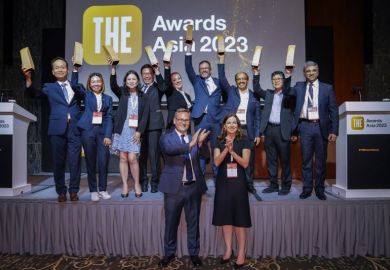If one of the purposes of a university is to find solutions to society’s biggest challenges, there could not be a better and more challenging to-do list than the United Nations’ 17 Sustainable Development Goals, the “Global Goals”.
The template of indicators encourages urgent attention on everything from poverty to continuous collaboration, supported by a series of targets that map a pathway to success.
This universal framework, adopted by all UN member states in 2015, has been broadly adopted worldwide and universities are seen as having a crucial role to play through teaching, finding novel solutions in their research and promoting Global Goal ideas across institutions and into our communities.
The United Nations Academic Impact (UNAI) initiative, which seeks specifically to align institutions of higher education, scholarship and research with the United Nations and with each other, has designated 17 global hubs to help take the SDG agenda forward.
De Montfort University in Leicester is currently the UK’s only higher education institution with hub status and has responsibility for SDG 16: peace, justice and strong institutions.
The role was awarded to the university following a positive working relationship with the UN’s Department of Global Communications to energise universities’ support for refugees and migrants in their communities.
Each hub has a responsibility to serve as a resource for best practices for the UNAI network, currently composed of more than 1,400 universities and colleges in more than 130 countries worldwide.
For universities seeking to champion an SDG, across the 17 goals, there may be some more obvious and tempting goals to take on, for example SDG 1: zero poverty, SDG 3: health and well-being or SDG 4: quality education. These all feel like an easy sell to academic colleagues to deliver work on.
But since becoming the SDG 16 hub, university academic and professional staff at DMU have revelled in the challenge of understanding the goal and its interlinkages within their own fields.
Last month, for example, there were 15 senior East Midlands police detectives on campus discussing their biggest challenges in organised and serious crime to 30 academic staff united by the goal of seeking impact on SDG 16 targets.
It’s lecturers and events like this where researchers representing communities from the arts, health, business, law, technology or media have enthusiastically come together to share their knowledge, and in some cases rethink how they apply it in a new context. The real opportunity of being an SDG hub lies in using the Global Goals to unite academic staff behind a common objective.
One of the challenges for universities around the SDGs is how to progress towards targets on global issues at a time when UK institutions are increasingly being asked to focus on their local civic and community commitments.
There is no simple solution to this tension, other than to adopt the mantra of “think globally, act locally”. The majority of the targets across the SDGs can be as relevant in our cities and rural communities as in developing countries. And potential solutions can be tested here and scaled.
Universities have already made great strides in getting their own houses in order to demonstrate leadership on this issues. Climate emergency declarations, plastic reduction schemes, heating efficiencies investment and even meat bans are now commonplace in UK higher education.
In the communities we serve, the SDG messages are being shared and exciting projects co-created and developed around them.
Furthermore, many international issues often manifest themselves closer to home. The hidden crisis of human trafficking and its link to UK business supply chains is one stark example.
Momentum is growing across the sector and league table rankings, such as Times Higher Education’s University Impact Rankings, have helped focus minds. Now that the UN’s “Decade of Action” to accelerate the impact of the SDGs has begun we must act. Missing the targets for 2030 is not an option.
Mark Charlton is associate director of public engagement in the directorate of social impact and engagement at De Montfort University.
Mr. Charlton will be speaking at the THE University Impact Forum: Peace, Justice & Strong Institutions at the University of Deusto in Bilbao, Spain 20-21 February, 2020. Find out more.




